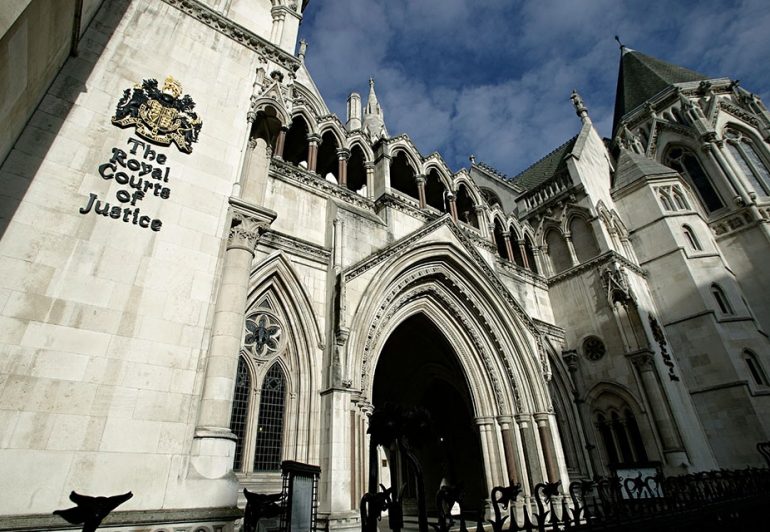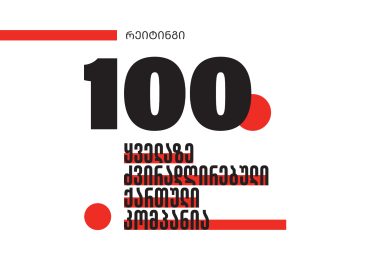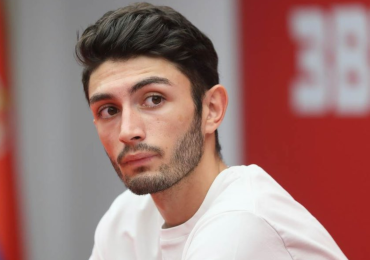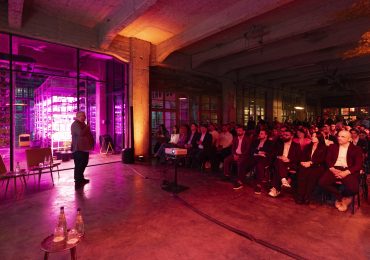On 01 November 2018, the Hon. Mrs. Justice Cockerill of the England and Wales High Court (Commercial Court) delivered a judgment that may have a major impact on some of the largest private business operated in Georgia.
The case concerns management of the assets owned by the late billionaire Mr. Badri Patarkatsishvili. Judge Sara Cockerill established that the actual proprietor of the assets, Irakli Rukhadze breached his fiduciary duties that were bestowed upon him based on his position of the director of the Salford Capital Partners International. According to the court judgment, Irakli Rukhadze acted in conflict with the best interests of Salford, conspired against the company and basically gained control of the assets that were previously managed by Badri Patarkatsishvili’s chief financier Eugene Jaffe and the company Salford Capital Partners International.
The case was heard over four weeks at the High Court of Justice on the premises of Westminster Abbey in London. Honorable Judge Sara Cockerill heard the testimonies given by Badri Patarkatsishvili’s widow – Ina Gudavadze, the founder of Hunnewell Partners – Irakli Rukhadze, CEO of the Salford Capital Partners Eugene Jaffe, as well as former employees of Salford and representatives of the claimants and defendants.
In her judgment, the Hon. Mrs. Justice Cockerill pointed out that the evidence provided by Rukhadze revealed apparent deviation from facts. The judge notes, that Rukhadze’s testimony revealed a clear tendency to lie in the court room.
“I received the impression that he would not be overly concerned about lying in what he considered a good cause; and indeed, in some respects I have concluded that his evidence was not truthful but constructed. Moreover, his testimony was sometimes on the hoof and inconsistent with the case put by his legal team”, – says Judge Cockerill in her judgment.Judge Cockerill thinks that another founder of Hunnewell Partners – Mr. Igor Alexeev also lied in his testimony.
In her assessment of the evidence provided by the widow of Badri Patarkatsishvili – Ina Gudavadze, Judge Cockerill indicates that Mrs. Gudavadze had not prepared for her stint in the witness box:
“Although some features of her evidence appeared candid and telling, I did not overall find her evidence particularly satisfactory. My clear impression was that one could discern indications that she had prepared for the hearing by embracing some broad lines for responses relating to certain periods and she did appear to have some particular points which she was determined to get across, regardless of the questions asked – though to be quite fair to her at times I was unsure whether this approach derived from not having fully understood the question being asked. Her evidence was clear as to her own motivations; she was concerned to protect her family. Even though appearing as a witness to support Mr. Rukhadze’s case and Hunnewell, Mrs. Gudavadze was not prepared to say that she trusted him fully: “Доверяй, но проверяй” was her answer (“Trust, but verify”).
About Salford
Salford Capital Partners Inc. was founded in 2001 with intent to manage Patarkatsishvili’s and Boris Berezovky’s assets. From the day of its founding, Mr. Eugene Jaffe was the CEO and owner of 100% share of Salford. Salford Capital Partners was basically the only company that provided Badri Patarkatsishvili with wealth management services. With the exception of Salford, nearly one hundred percent of Patarkatsishvili’s business empire was managed though informal transactions and had no corporate form whatsoever.
Badri Patarkatsishvili met the CEO of Salford Eugene Jaffe in August 2001. Eugene Jaffe (Evgeny Ioffe) left the Soviet Union in 1989 and went to study in the US. In 1996 he graduated from the Harvard School of Business. After that he worked for two large investment and merchant banks operating in Central and Eastern Europe, Russia, and the CIS.
At this period Badri Patarkatsishvili’s main business partner was Boris Berezovky. They made most of their fortune in the early 1990-s during the first wave of privatization. In 1984, Badri became Deputy Director General of Gruzavtovazprom, a company that purchased and delivered cars and spare parts from Avtovaz which was at the time, the largest car manufacturer in the Soviet Union. In 1989, Badri and Berezovsky founded Logovaz with some of the senior executives of Avtovaz. Soon Berezovsky has become the largest shareholder of Avtovaz. In 1994, Berezovsky gained control over ORT Television and Badri Patarkatsishvili was his deputy. Following a serious fallout with the newly elected president of Russia Vladimir Putin, Boris Berezovsky left Russia in October 2000 and since Patarkatsishvili had very close ties with Berezovsky, he decided to leave Russia too. In 2001, Badri Patarkatsishvili returned to Georgia.
His main concern at that time was to protect his wealth, since there was an actual risk that Patarkatsishvili could suffer a major financial damage from Putin. Salford Capital Partners International was founded for this purpose.
One of the key issues reviewed by the court was the VDP – Value Discovery Partners, a private equity fund operated under Salford and registered in the offshore Virgin Islands. VDP represented a limited partnership, which united several legal entities. The Principal Limited Partner in VDP was a Gibraltar company called New World Value Fund (“NWVF”) that was incorporated in 2004. It held most of Patarkatsishvili’s assets.
Pursuant to the articles of partnership, Salford (SCPI) was entitled to an annual management fee of 2% of the aggregate capital contributions of the limited partners. VDP was payable to two other companies – KBC Partners LP and SCI Partners LP. Both entities were created to receive revenue generated by the VDP.
Although the assets contributed by NWVF had been acquired using money which ultimately belonged to Boris Berezovsky and Badri Patarkatsishvili, VDP was deliberately structured to conceal their connection. Thus, they had no interest of any kind in VDP or in NWVF. Instead, entities held in trust structures associated with Boris Berezovsky and Badri Patarkatsishvili held loan notes in NWVF which were convertible into shares – the plan being that conversion would take place upon the sale of the assets.
The reason why the companies had such a complicate structure was to protect the assets in case of legal problems. Despite SCPI’s efforts to actively distance itself from Boris Berezovsky and Badri Patarkatsishvili, rumors circulated that SCPI was the key asset of their wealth. It is noteworthy that the disagreement between billionaires in 2006 led to the end of their business relations, however Berezovsky held on to his assets in SCPI.
SCPI had its head office in London, which was managed by Eugene Jaffe. The company had offices in Belgrade, Moscow and Tbilisi. At the time of Patarkatsishvili’s death, Irakli Rukhadze was the head of the SCPI office in Tbilisi. In spite of being closely associated with the influential billionaires, SCPI managed the company assets mostly independently.
As of February 2008, the SCPI managed assets in four countries (Serbia, Georgia, Russia and Ukraine) and its cumulative investment exceeded $1 billion. The value of VDP assets was $320 million.
Salford Georgia was to a certain extent distanced from the SCPI head office and based on the court judgment, Salford Georgia was under no obligation to manage VDP assets. At the same time, the assets managed by Salford Georgia were not part of the VDP. Irakli Rukhadze managed these assets through a special trust, including the country’s largest telecommunication company Magti and a share in Standard Bank, which was bought by the SCPI in 2005. Moreover, unlike other regional office, Rukhadze occasionally received instructions from Badri Patarkatsishvili. According to the court judgment, after Badri’s death, Mr Rukhadze negotiated a deal with the Georgian government and sold the assets of Standard Bank.
However during the entire period when Irakli Rukhadze managed the Salford Georgia his immediate boss and the person he reported to was Eugene Jaffe.
None of the Salford managers apart from Mr Jaffe held an equity interest in SCPI. Instead, they were given percentage shares in SCPI’s entitlement to carried interest arising upon the sale of managed assets. These amounted in 2008 to US$300 million.
Badri Patarkatsishvili’s Death
Badri Patarkatsishvili died on 12 February 2008. The billionaire’s death was an immense tragedy for his family. According to Judge Sara Cockerill, Badri had maintained a strict separation between his business and home life. Consequently, his family members had very little information regarding what Badri had owned. Furthermore, due to the fact that certain share of Patarkatsishvili’s wealth existed in rather informal way, it was very difficult to track. The family faced the challenge of first locating these informal assets and then gaining ownership. With the exception of the SCPI, all the other assets owned by Badri were inaccessible for them. What made things even worse, was that Badri Patarkatsishvili did not leave a will. Soon the family launched a series of litigations against Joseph Kay. Through a similar informal deal, virtually all of Badri’s cash, bank accounts and assets were held or administered by Joseph Kay. Badri’s another informal treasurer was a Russian businesswoman called Natalia Nosova.
Joseph Kay presented documents purporting to be a validly executed will, which appointed him as executor of Badri’s estate. He claimed ownership of various assets within the estate such as Rustavi Metallurgical Plant and a expensive estate on Fisher Island, on the outskirts of Miami. Although the testamentary documents on which Joseph Kay relied were later shown to be forgeries, his claims were initially successful before the Georgian courts.
In addition to Joseph Kay, several other people attempted to take control over the late billionaire’s estate. Boris Berezovsky initially announced himself to be the Family’s protector. His claimed that the Economic Divorce that took place in 2006 was a transaction under which Badri had agreed to buy him out of their joint interests, but that it had not completed by the time of Badri’s death. Accordingly, he claimed that the estate owed him a substantial debt. He therefore claimed an entitlement to 50% of the assets managed by VDP.
Another claimant for Badri’s estate was Olga Safonova, a woman who claimed to have been married to Badri in St Petersburg in 1997. She came forward asserting that as his lawful wife, since Gudavadze was not Patarkatsishvili’s lawful wife, she was entitled to 50% of his estate.
Another player in this game was the Georgian government, which took a number of aggressive steps against Badri’s Georgian assets. One example was Borjomi, a bottled water company, in relation to which they pursued criminal charges and refused to renew its water extraction license.
Immediately following Badri’s death, Mr. Jaffe and Mr. Rukhadze provided assistance and consulting to help the Family cope with the crisis. They arranged for Mrs. Gudavadze legal support from an American company Debevoise & Plimpton, who deployed a team led by Lord Goldsmith. Before joining the company, Lord Goldsmith was a high-ranking British government official.
In the weeks following Badri’s death SCPI instructed its team of lawyers to assist in searching for assets and identifying their holding structures.
At this time, Mr Jaffe was working on a plan to minimize the impact of the risks coming from Boris Berezovsky. However, this led to an unhappy incident when Mrs. Gudavadze met with Boris Berezovsky alone and was persuaded to sign a Memorandum of Understanding, which stated that Berezovky was the owner of half of Badri’s estate. Mr. Jaffe regarded this as a catastrophic mistake and took action to eradicate damages. Another problem requiring urgent attention was alleviating the family’s cash crisis. After selling the Standard Bank, the family received $17 million.
How did the dispute between SCIP and Irakli Rukhadze originate?
SCPI is an independent company that managed assets owned by Patarkatsishvili and Berezovky. Since the company planned to support Patarkatsishvili’s family, there was a potential risk that this support would lead to a conflict of interests with another beneficiary of the company – Boris Berezovsky. At the same time, another problem emerged, namely: one of the loan-note holders in NWVF, an entity called LMC, had come under Boris Berezovky’s influence. In spite of these obstacles, Eugene Jaffe and SCPI were determined to provide Patarkatsishvili’s family with full recovery services of the assets. Soon it became clear that Irakli Rukhadze wanted to provide recovery services for the family not through a company under the SCIP, but a separate partnership established for these purposes.
The court judgment describes the presentation prepared for Ina Gudavadze on recovery services to be delivered by the SCIP. The electronic correspondence between Rukhadze, Jaffe and other employees clearly shows that Rukhadze insisted that Salford Principals replace SCIP in providing the family with recovery services.
Representatives of the Hunnewell Partners argued at court that in 2008, the SCPI made a decision that neither Salford, not any of its subordinate legal entities would be able to provide the Patarkatsishvili family with recovery services. At the same time, Rukhadze’s side argues that it was decided to grant him 40% share in the new company. However, the court deemed this evidence as a lie, since there was no relevant proof to substantiate Rukhadze’s evidence.
Two companies were founded in 2009 under the umbrella of SCPI. Recovery Partners was founded in late October and Revoker was founded in early November. These two companies were created to provide the Patarkatsishvili family with asset recovery services. Irakli Rukhadze and his partner Igor Alexeev became members of the newly established Revoker in 2009.
The Framework Agreement on recovery services required the Family to commit to setting up a new private equity fund with an initial capital value of at least $500 million. This fund comprised 50% of all assets readily convertible into cash issued by Patarkatsishvili and all recovered liquid assets.
On 14 January 2009 Ms Gudavadze signed a letter providing for the payment of a $3m annual fee to Recovery Partners. Recovery Partners faced major challenges, including the obligation to defend the interests of the Patarkatsishvili family and provide legal support in court litigations.
In 2008-2012 the family had litigations in England with Boris Berezovsky. At the same time, the Patarkatsishvili family had litigations with Joseph Kay in the courts of Great Britain, Georgia, Gibraltar, Liechtenstein and the United States, as well as the litigation with the government of Georgia.
Another major challenge was lack of cash. The family was paying colossal fees for legal services during litigations, while it faced a major problem related to the businesses operated by the family. These companies required investments for growth.
In December 2009, Irakli Rukhadze resigned from his position at Salford. Judge Sara Cockerill tried to determine the real reason for Rukhadze’s resignation from his post.
After the relationship between Eugene Jaffe and Irakli Rukhadze became very tense, Rukhadze’s actions impeded SCPI from fulfilling the obligations undertaken by establishing the Recovery Partners.
“The relationship between Mr. Jaffe and Mr. Rukhadze however continued to deteriorate. Another ill-tempered meeting occurred in early September in which Mr. Jaffe understood Mr. Rukhadze to be asserting his primacy with Mrs. Gudavadze (“Inna is mine” was how he recalled it being put), and that he might join the Family to help them negotiate against Mr. Jaffe. Mr. Jaffe pressed Mr. Rukhadze to say how he wanted to take matters forward. At the same time, he accidentally permitted a communication to be sent which indicated that SCPI did not accept that Mr. Rukhadze had a carried interest in Borjomi (which he did), causing Mr. Rukhadze grave offence”, – reads the judgment.
According to the records, on 24 March 2011, Irakli Rukhadze demanded that the shares of the company Revoker be registered under his name. SCPI refused to meet his demand. In this same period, Irakli Rukhadze attempted to turn Patarkatsishvili’s family against SCIP. The evidence presented in the case revealed that Rukhadze wrote to the family members and advised them to discontinue the SCIP and Revoker project.
Later on, Mr Rukhadze and his partners Igor Alexeev and Ben Marson, made the arrangements to set up Hunnewell Partners and its subsidiary companies. At the same time, Rukhadze and his partners, bypassing SCPI and Eugene Jaffe, signed a contract with Patarkatsishvili’s family. Based on the contract, they had the right to grant the family with access to $500 million worth of assets. At the same time, the Hunnewell would receive 15% of the value of the recoveries.
Consequently, SCPI lost the opportunity to provide Patarkatsishvili’s family with recovery services, as well as significant financial resources.
At the present moment, Hunnewell manages the largest assets owned by Patarkatsishvili’s family, including the Rustavi Metallurgical plant and a share at HeidelbergCement. Hunnewell also has financial interests at the Liberty Bank.
Which requirements of the law did Irakli Rukhadze fail to meet?
In 2004, the British Virgin Island enacted the BVI Business Companies Act, according to which: “Director of a company must act honestly and in good faith in the best interests of the company”. Rukhadze owed these duties to the company when he offered the Patarkatsishvili family property recovery services.
At the same time, Rukhadze owed fiduciary duties to SCPI. Fiduciary Duties are the obligations of the company managers and trustees to act in the best interests of the company, promote its growth and development. These norms comprise obligations for elimination of conflicts of interests and protection of confidentiality of the information relating to the general state of the company.
Fiduciary Duties represent a set of legal norms that have been strengthened by numerous precedents in the British court of law. Sara Cockerill noted in her judgement that Irakli Rukhadze, being the top manager of SCPI, was obliged to fulfill his fiduciary duties.
The court believes that the arguments names by Irakli Rukhadze for resigning from his post raise many questions. At the same time Rukhadze owed fiduciary duties to the company Recovery Partners.
According to the court judgment, Irakli Rukhadze breached the fiduciary duties that he owed to SCIP, Recovery Partners and Revoker by leaving the claimant without the opportunity to carry out recovery services. The court also established breach of fiduciary duties by Rukhadze’s partners as well, namely Igor Alexeev breached the fiduciary duties he owed to SCIP and Revoker and Ben Marson breached his duties towards Revoker. The court ruled that Rukhadze’s resignation was done with intent to compete with his own company.
What will Patarkatsishvili’s family decide to do next?
The court judgment includes the position of the Patarkatsishvili’s family as well. Sara Cockerill writes:
“During the cross examination, Mrs Gudavadze said that she hoped that everything could be settled and had no objection to doing business with either; but it seems that the Family’s position was that there would be no progress for anyone until Mr Jaffe and Mr Rukhadze ironed out their differences”.
What was the outcome of the litigation?
The litigation between Eugene Jaffe and Irakli Rukhadze is not over yet. The litigation will now enter the second phase to determine the extent of loss suffered by Salford as a result of the actions undertaken by Hunnewell Partners and also to determine which financial assets were misappropriated by the defendants. After the meticulous assessment of loss, the decision will be made as to what Hunnewell Partners will have to give up in favor of Salford. Based on the immense extent of the assets owned by the Patarkatsishvili family, the next litigation may decide the fate of assets worth tens and hundreds of millions.
















